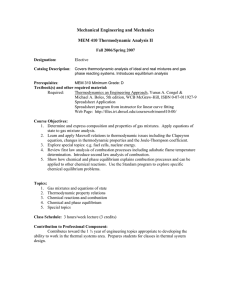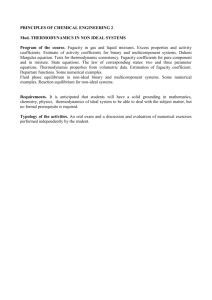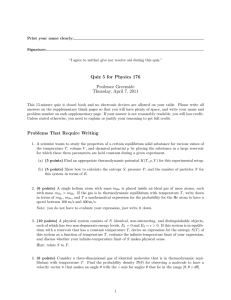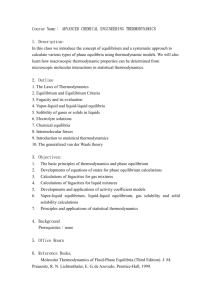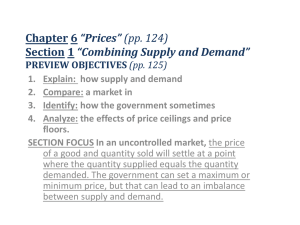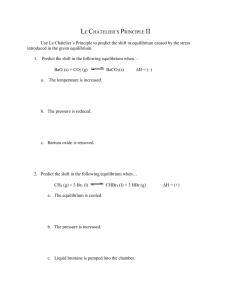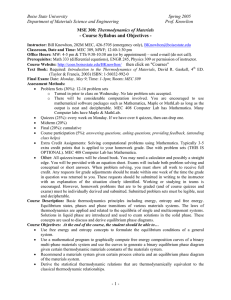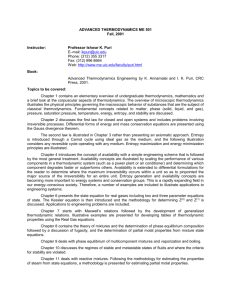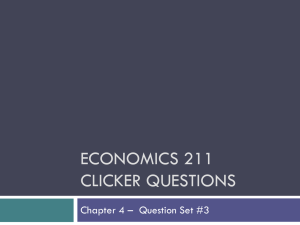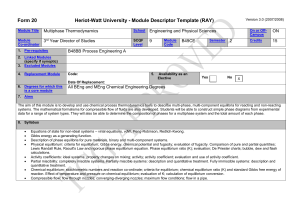Card - Ingegneria Chimica
advertisement
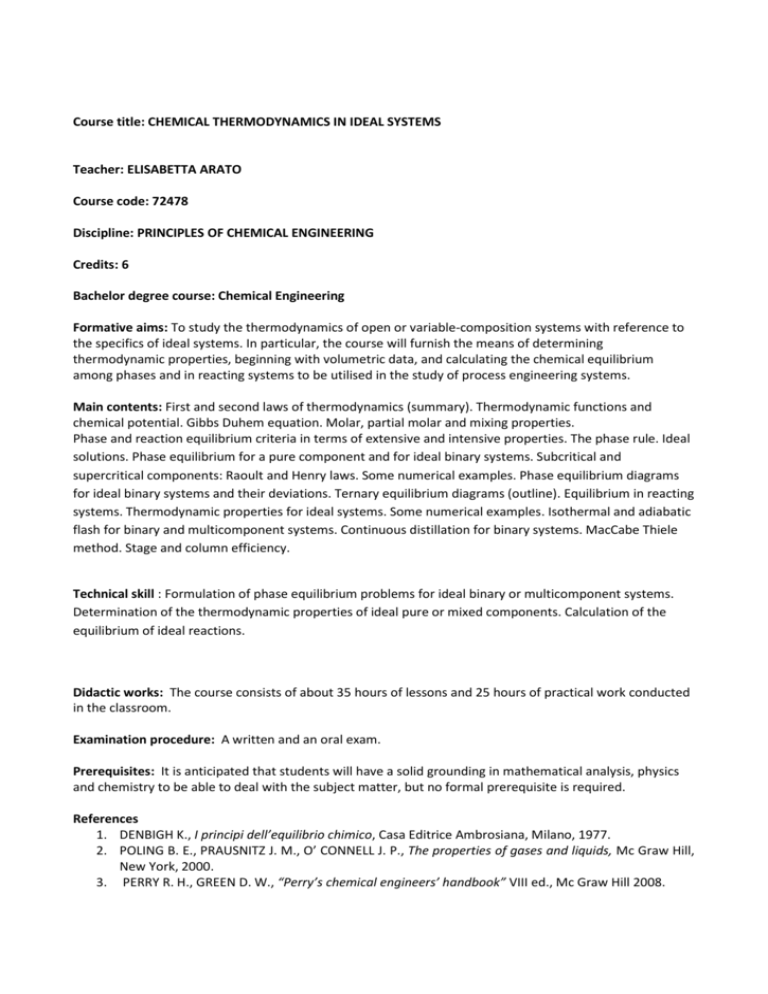
Course title: CHEMICAL THERMODYNAMICS IN IDEAL SYSTEMS Teacher: ELISABETTA ARATO Course code: 72478 Discipline: PRINCIPLES OF CHEMICAL ENGINEERING Credits: 6 Bachelor degree course: Chemical Engineering Formative aims: To study the thermodynamics of open or variable-composition systems with reference to the specifics of ideal systems. In particular, the course will furnish the means of determining thermodynamic properties, beginning with volumetric data, and calculating the chemical equilibrium among phases and in reacting systems to be utilised in the study of process engineering systems. Main contents: First and second laws of thermodynamics (summary). Thermodynamic functions and chemical potential. Gibbs Duhem equation. Molar, partial molar and mixing properties. Phase and reaction equilibrium criteria in terms of extensive and intensive properties. The phase rule. Ideal solutions. Phase equilibrium for a pure component and for ideal binary systems. Subcritical and supercritical components: Raoult and Henry laws. Some numerical examples. Phase equilibrium diagrams for ideal binary systems and their deviations. Ternary equilibrium diagrams (outline). Equilibrium in reacting systems. Thermodynamic properties for ideal systems. Some numerical examples. Isothermal and adiabatic flash for binary and multicomponent systems. Continuous distillation for binary systems. MacCabe Thiele method. Stage and column efficiency. Technical skill : Formulation of phase equilibrium problems for ideal binary or multicomponent systems. Determination of the thermodynamic properties of ideal pure or mixed components. Calculation of the equilibrium of ideal reactions. Didactic works: The course consists of about 35 hours of lessons and 25 hours of practical work conducted in the classroom. Examination procedure: A written and an oral exam. Prerequisites: It is anticipated that students will have a solid grounding in mathematical analysis, physics and chemistry to be able to deal with the subject matter, but no formal prerequisite is required. References 1. DENBIGH K., I principi dell’equilibrio chimico, Casa Editrice Ambrosiana, Milano, 1977. 2. POLING B. E., PRAUSNITZ J. M., O’ CONNELL J. P., The properties of gases and liquids, Mc Graw Hill, New York, 2000. 3. PERRY R. H., GREEN D. W., “Perry’s chemical engineers’ handbook” VIII ed., Mc Graw Hill 2008.
